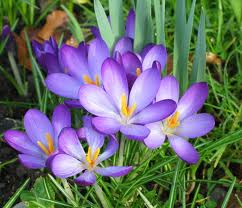For many people who suffer from asthma or hay fever, allergens put a constant damper on any outdoor activities, especially when the patient is susceptible to pollen, a ubiquitous part of vegetation. This doesn’t mean, however, that asthmatic or allergic patients have to limit their gardens to rockwork and concrete. With the right choice of plants, a hypoallergenic garden can be grown.
It is logical to begin planning a hypoallergenic garden by choosing plants that do not rely on the wind for pollination. This would immediately eliminate several popular choices for plants, including many forms of trees, grasses, shrubs, and flowering plants. All is not lost, however, and with the help of a horticulturist, allergy and asthma patients can find a sufficient variety of non-flowering or insect-pollinated plants to grace their gardens. Garden layouts should prevent flowers from being close to entryways or windows around bedrooms.
Image source: fivestarlandscape.com
Allergic patients may also wish to reconsider many popular forms of garden mulch. Oyster-shell, gravel, or other inorganic mulches are preferable to wood-chip mulches.
Timing and labor are also important. Grass should be kept really short and be mowed by a member of the household with no allergies. Meanwhile, patients should avoid gardening during windy days to prevent pollen. Because weeds often release huge amounts of pollen, weeding should be frequent.
Image source: claytonbitlerservicecompany.com
Although there is no guarantee that a hypoallergenic garden can prevent all instances of allergies (due to wind playing a huge role in carrying allergens being unavoidable), it can significantly reduce the number of allergens in the air letting the patient work on and appreciate a lush and beautiful outdoor landscape. Patients should take the necessary caution such as wearing protective gear and taking medication such as relievers when gardening.
Lisa Marie Cannon‘s practice provides diagnostic, treatment, and management options to patients with pulmonary and respiratory conditions. Visit this Facebook page for more updates and findings on respiratory health.

